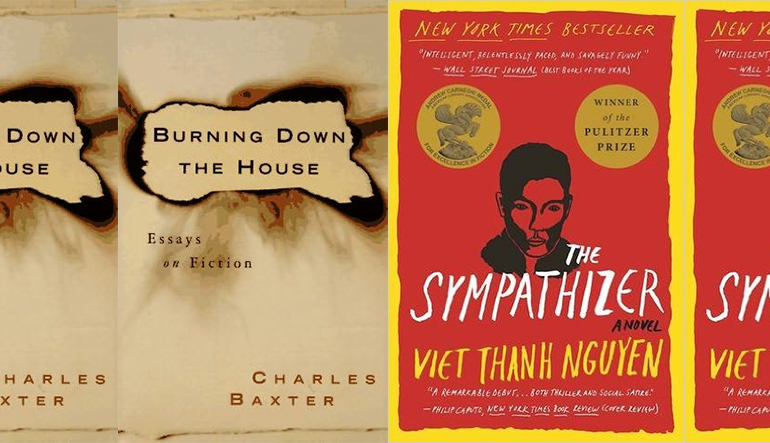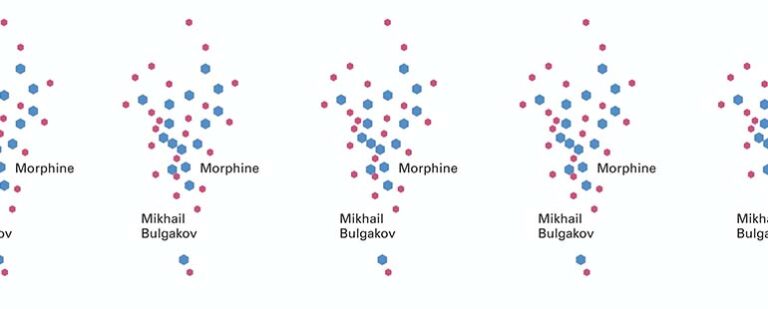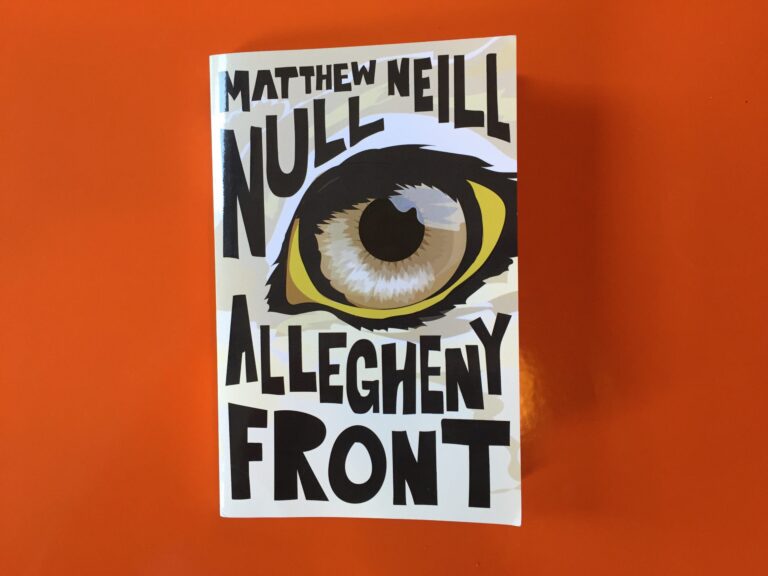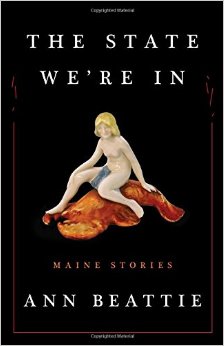Killing the Messenger: A Dual Interview with Charles Baxter and Viet Thanh Nguyen on the Importance and the Stigma of Didactic (APIA) Fiction

Inside the craft-obsessed, time-warped fiction workshop where literary realism has reigned supreme forever, the Show-Don’t-Tell maxim serves an important function in critique: it warns writers from taking shortcuts in their own drafts and encourages them to “do the (technical) work” with characterization, plot structure, world building, and literary thematics, which is why didacticism is traditionally but tacitly prohibited: a work of fiction, according to institutional advice, shouldn’t need to tell us what its moral lessons are, it should be able to show us (and do so without resorting to epiphanies). In other words, War and Peace is fine for the first 1,246 pages, but those last fifty pages where Tolstoy gives his readers a philosophical insight on the moral shortcomings of war and the blind spots of Western history, well, Houston, we now have a problem. Charles Baxter in his seminal work, Burning Down the House, argues against the pay-off model of literary epiphanies in fiction, connecting them with religious revelations, marketing theory, and the Ford model of self-discovery in his brilliant essay “Against Epiphanies.” For Baxter, fiction already goes places without having to claim special wisdom or deeper insight into the nature of human existence.
Knowing this discursive context, Viet Thanh Nguyen’s Pulitzer Prize-winning novel The Sympathizer is especially fascinating, in part, because of the way in which it defies all the conventional rules of literary fiction: it challenges both the craft assumption that great literary fiction can’t give us insight (about ourselves) or teach us something (we only partially understood). His multimodal novel, which combines elements of literary, historical, and detective fiction, feels like an intentionally didactic novel because it aims to challenge, rewrite, and even educate, the American popular imagination by giving readers a Vietnamese perspective of the Vietnam War from the point of view of a Vietnamese American double agent (a spy being merely a cultural signifier for refugee in America). The Sympathizer forces readers of Asian American Pacific Islander (APIA) literary fiction to reconsider our own craft dogma and ask questions about the value of literary didacticism all over again: when is didactic literature useful, even necessary, and what purposes can it serve in our society as art, historiography, and also racial, cultural, and moral education?
Jackson Bliss: In the echo chamber of literary fiction criticism and craft discourse, there seems to be a stigma on didactic literature. Do you think that’s true, and when, if at all, is literary fiction allowed to be didactic? Are there any political issues, historical events, or other instances of cultural urgency that might necessitate literary didacticism?
Charles Baxter: Well, we have to know what we’re talking about when we say “didactic literature.” A great deal of literature can teach us facts (about how some activities are performed and accomplished–whaling, for example, in Moby Dick). You can learn about battle formations in War and Peace and English upper-class courtship rituals in Pride and Prejudice. But when you say “didactic literature,” you usually mean discursive lessons like the theses on history at the end of War and Peace or the argument that West Virginia is a third-world state in the USA, thanks to coal mining (an argument in Franzen’s Freedom). When a culture or sub-culture is endangered or in crisis, its stories will often have a didactic intent. Its writers are burning to teach us something they know to be true and that we don’t know. Think of African-American literature here, or Native American literature. “The Grand Inquisitor” is a didactic section of The Brothers Karamazov, and it’s one of the greatest chapters that Dostoyevsky ever wrote. James Baldwin’s essays are often didactic. Who objects to that? No one should. Toni Morrison’s novels are subtly but not overtly didactic. They have points to make, and the points are complex, because she’s often dealing with the history of racism in America. Any cultural crisis will bring forth a certain amount of didacticism: Adrienne Rich’s poetry of feminist thought, Robert Bly’s poetry against the Vietnam War.
Viet Thanh Nguyen: “Show, don’t tell” is one of the mantras of the workshop. It is a particular aesthetic of literary realism that is masked as a universal one by writing teachers, and accepted as a universal standard by writing students. I use that aesthetic in The Refugees, because I taught myself how to write by writing that book, and that included absorbing the dominant aesthetic. But The Sympathizer is based on “show and tell,” a combination of realism and didacticism that matches the narrator’s narrative dilemma (he’s writing a confession), his ambivalent political convictions (he’s a communist and he’s in love with American culture), and the novel’s political ambitions (to say things that many people would not say). I wrote the novel in this manner because I believe that didacticism has an aesthetic purpose, and can be done well or badly. In the American literary context, many people think it can only be done badly. My feeling is that “show, don’t tell” can be done well or badly, but it’s triumph is that many writers and readers can’t see an aesthetic outside of it. It’s also an aesthetic that is prone to being apolitical, and which actively depoliticizes, because it discourages the possibility of saying explicitly political things. I wanted to write a novel that would show you could deploy didacticism intelligently and provocatively, and part of the reason was to rebel against the stifling, boring, and bland regime of middle-brow literary realism that holds sway in the contemporary American literary world.
JB: In your opinion, is there a connection between epiphanies in literature (like those mentioned in Burning Down the House, for example) and “telling” too much in a work of fiction? Do you see a relationship between mimetic narratives, reader entitlement, and/or the reader’s expectation of payoff in the narrative arc (or character reveal)?
CB: I really don’t mind if fiction becomes essayistic from time to time. Sometimes the dramatic situation requires it. No one minds “telling” if the teller is smart and perceptive and observant, and if the sentences are graceful and beautiful. As for “the reader,” I’m not sure what, or who, s/he is. There are all kinds of readers. Some readers want a moral lesson; some readers (like John Gardner) think that literature should give us positive and negative models for behavior; and some readers just want the author to get on with the story–forget the moral. Tell the story. Write the poem.
VTN: I don’t have a problem with epiphanies in literature. They can be quite moving, subtle, and graceful. But these epiphanies, as they are deal with in contemporary American fiction, are often purely private, individual, psychological, and emotional. But there’s nothing in the definition of an epiphany that says these must be the boundaries of epiphany. The epiphany’s Biblical and religious origins bring the person who experiences the epiphany into contact with a larger force and community. Literary realism shrinks revelation down from the divine into something purely within one’s own mind and soul. That’s not to be denied, but still, I also long for revelation that brings one out of own’s self. The Sympathizer is about epiphany in the personal, political, and religious senses. Such a move is based on my belief that literature can matter for more than the individual reader and writer. Literature can connect us to the world, to the divine, to the mass movement of people and the urge to change the world. That’s one of the payoffs that I want in my writing and reading.
JB: What are the (less) obvious pitfalls of literary didacticism?
CB: Two problems: if there’s a lesson, you can always disagree with it. You can disagree with Tolstoy’s view of history, but you can’t disagree that Prince Andrei has been wounded in battle and is lying flat on his back staring up at the blue sky. The other problem, to paraphrase Walter Benjamin, is that what we want out of literature is for facts to be turned into experience. We want to inhabit a certain experience–like being in a battle and being wounded. We want to know what that’s like. We’re less interested in knowing that Tolstoy believes that individuals generally don’t shape history. For that you can read Hegel.
VTN: I’m not sure, as I was focused on the more obvious pitfalls—being pretentious, boring, prolix. On the less obvious side—perhaps less attention to the strengths of literary realism, a focus on the intimate and emotional. That’s why some readers prefer The Refugees over The Sympathizer.
JB: Is the tacit prohibition against didactic literature in fiction workshops connected to the show-don’t-tell maxim? Aren’t there certain works of literature when the diegetic narrative is not only appropriate, but even necessary (Sebold’s Austerlitz, Proust’s In Search of Swann’s Way, One Thousand and One Nights, epistolary novels, the bulk of experimental writing)?
CB: It’s rare for a young workshop member to have any interesting ideas. If s/he does have interesting ideas that s/he wants to teach, s/he can always write an essay. There’s a greater likelihood that a young writer can do a good job if s/he writing about a summer romance, as clichéd as that may be, than if s/he is arguing a point about courtship styles. The texts that you’re citing are products of a lifetime of observation and thought and feeling. Even the experimentalists tend to use discursive styles because they find many story-forms constraining, and if they don’t have any interesting ideas, their fiction will be ignored; it doesn’t matter how avant-garde it is (and the “avant-garde” is probably an obsolete category anyway). A good deal of “experimental” writing in fiction and poetry is simply Modernist Revival. The style may seem new, but the ideas underlying it are straight from the 20th century antique shop.
VTN: Yes, see above. The examples that you cite are all relevant. The One Thousand and One Nights example shows that didacticism in literature (and certainly in art) goes back a long way, and shouldn’t be thrown out simply because contemporary tastes differ. The epistolary novel is also important, as it shows that there are different ways of writing a novel. I think too of novels that are masked as autobiographies, or travelogues, or any other kind of genre, like how-to manuals. Experimental writing and avant-garde writing in general likewise exists at the economic margins of the contemporary literary world, and are doing things often beyond easy definition or teaching, because they resist genre, and contemporary “literary” fiction is an unacknowledged genre. As for Sebald and Proust and all the other European modernist writers, they all disregard “show, don’t tell,” or never even heard of it in the first place. Sebald was a big influence on me. I always thought with The Sympathizer that I was writing a European (modernist) version of an American novel.
JB: As writers, is it possible that we assume too much of our readers sometimes? In other words, is there ever a case when writing needs to be didactic because readers are simply either uninformed or simply not conversant (or motivated) enough to know what the author is arguing in their own text (or the historical/cultural background in which the text is situated)?
CB: It depends what we’re writing about. If you’re writing a thriller like The Taking of Pelham One Two Three, you need to explain to me how the NYC subway system works when there’s a runaway subway train. If you’re writing a marriage novel, however, you don’t need to start sermonizing to me about what a good marriage contains. I have my own views about that. The more esoteric the subject, the more explaining may be required. I may be in a minority here, but I find the footnotes, digressions, and discursive elements of David Foster Wallace’s Infinite Jest less interesting than his essays, though he’s almost always entertaining but you shouldn’t overestimate the reader’s supply of information, either.
VTN: Sometimes literature needs to refuse subtlety. In some cases this might stem from a need to make sure the reader gets it. But in other cases, the refusal of subtlety itself comprises an aesthetic technique that adds texture and variety. There’s pleasure to be had from didacticism. I remember watching Aimé Cesaire’s “A Tempest” at the Berkeley Rep and feeling myself electrified by its explicit political commentary, and laughing at the satire of The Tempest. The older white couple next to me didn’t make a sound. Didacticism can be divisive, but partly because it is divisive, it is powerful, especially for those who have been silenced or stifled, especially in the name of subtlety and nuance and art.


